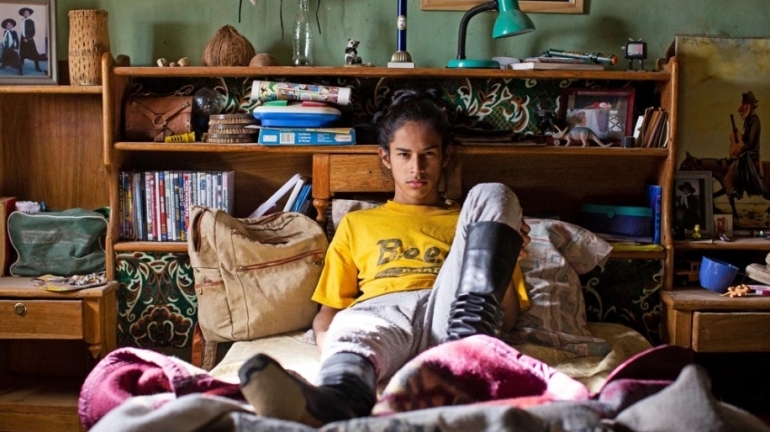Interview Agustí Villaronga: "Cinema is something else. Before lamenting, you have to adapt"
Pythagoras, the one with the golden thigh, used to say that the principle is the middle of everything. And nobody was born in Malaga wanting to refute him. Two debut operas, two (or three) actors and two ways not only to see the world but to scratch it with their eyes. This is how the Malaga Festival started just after the pandemic. Or almost. '
Ama
', by the Spanish Júlia de Paz Solvas
, places the burden of proof on the dazzling and sincere
Tamara Casellas
. And '
Karnawal
', by the Argentine Juan Pablo Félix,
does the same with the angry gesture of the young
Martín López Lacci
and with the quiet wisdom of the veteran
Alfredo Castro
.
Few times before the Malaga contest claimed with so much sense and success its triple status as Spanish, Iberian-American and even Pythagorean.
After the formal opening on Thursday by the willful and exciting
'El cover'
, a very interesting and danceable debut by the actor
Secun de la Rosa
as director, the official section took off the day after with two film exercises convinced of its ability to piece together the ever-unstable pieces of reality.
They are two principles within the very principle of a contest that in turn is but one more piece at the beginning of almost everything in which we are installed because of a virus.
Again, a good beginning is half of everything.
'
Ana
' tells the story of a mother who is punished for precisely that reason so motherly that motherhood is. Expelled to the street, the protagonist is seen alone and abandoned in the company of her daughter. Thus begins a journey of discovery of, once again, the origin of all origins.
De Paz Solvas thus manages to sign a work that is both research and fever
. It is about dismantling each of the common places that define the mother's sacred space, as well as a concept, and rebuilding it transformed into a simple wound. The camera of this newcomer director wants to be perhaps like that fist-cinema that Eisenstein himself dreamed of. It is cinema that asks, that questions itself and, above all, that takes the actress Tamara Casellas a
dazzling display of rage, delivery and clarity.
The actor Martín López Lacci in a scene from 'Karnawal'.
The two women, mother and daughter, will fight to find a place to live or simply to spend the night safely.
The director proposes a sort of
'road-movie'
necessarily aimless in a vacation city where everyone is passing.
And aimlessly.
The film thus abandons itself to the scene of a strange non-place
where everything seeks to redefine itself.
And that affects the very nature of the film's genre, so close to melodrama, as well as the very sense of that invisible and indestructible bond that unites two lost people.
You have to start over and every beginning is already the middle of everything.
The case of '
Karnawal
' is different and, however, very close to that of '
Ama
'. Juan Pablo Félix tells the story of Cabra, an adolescent determined to become a professional malambo, a gaucho folk dance that could be said to be as poisoned with life and death as flamenco itself. And so on until his father gets out of jail and everything gets complicated. Family is, first of all, a complication.
The actors Alfredo Castro and Martín López Lacci turn their respective performances into
two careful displays of silence.
It matters not so much what is seen or heard as everything that guilt, shame or desire is silent.
The film is presented structured as a 'thriller' and thus progresses through the night always aware of violence;
be it the evident of the weapons or that of the fury of a zapateado of malambo.
Now what is analyzed and dismantled is that so much of parents that is paternity.
The result is a film that is as rapturous as it is serene,
as aware of its quiet as it is fiery anger.
With Pythagoras, good principles are already half of all, of all all.
According to the criteria of The Trust Project
Know more
movie theater
culture
The World Wide OpenWilliam Deresiewicz: "This is the worst time to be an artist since World War II"
Exclusive previewBruna Cusí and Ricardo Gómez, two brothers in crisis in the drama 'Mía y Moi'
The final interviewRussian Red: "The word whore violates me, but I find it interesting to reappropriate it"
See links of interest
Holidays 2021
Home THE WORLD TODAY
San Pablo Burgos inherits - Lenovo Tenerife
Roland Garros: Rafael Nadal - Richard Gasquet, live
Club Joventut de Badalona - Barça
Friendly: Spain - Portugal, live

